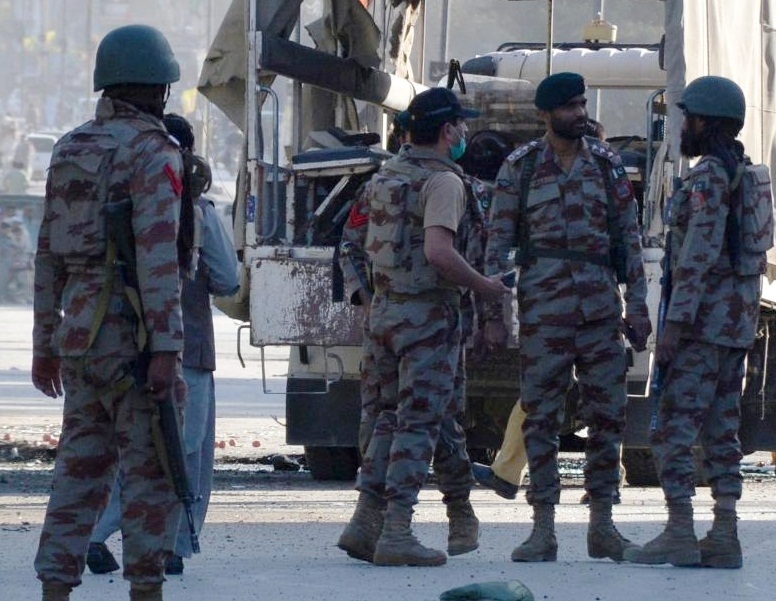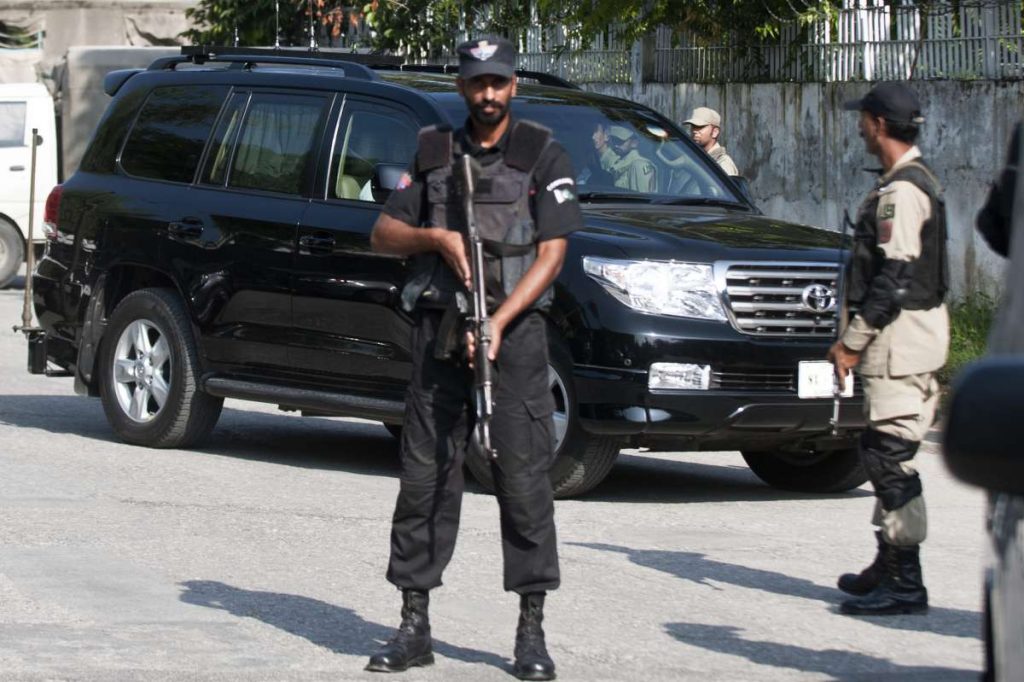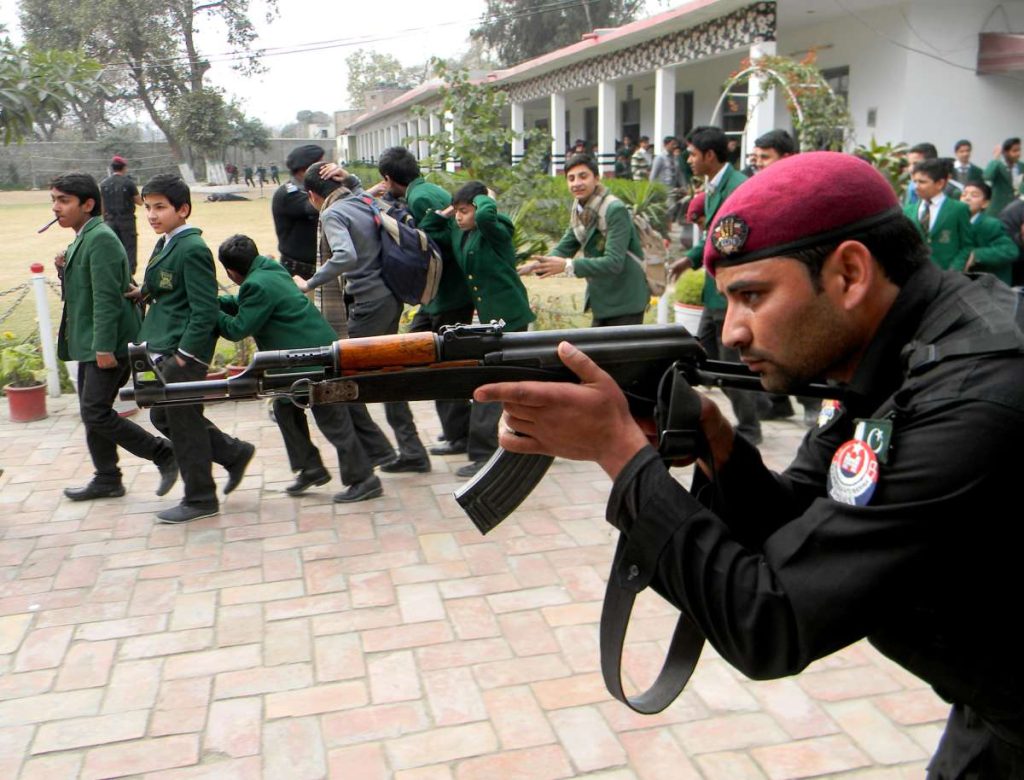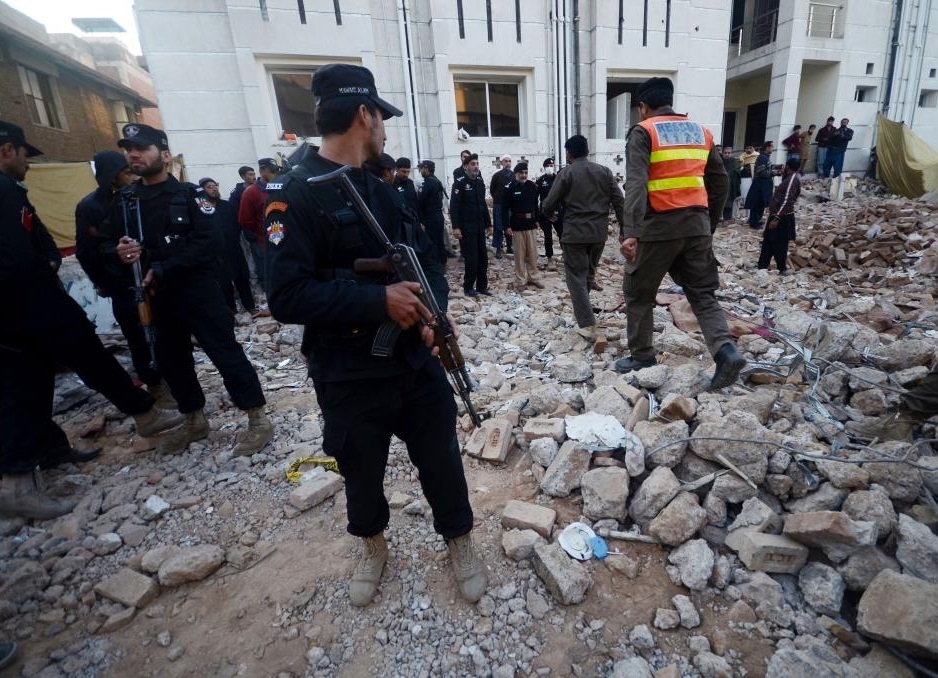Terror attacks have surged in Pakistan in tandem with the resurgence of the Taliban in neighbouring Afghanistan, writes Dr. Sakariya Kareem
Pakistan’s relationship with Afghanistan, a complex and turbulent one, is driven by its geopolitical ambitions and strategic concerns. Historically, Pakistan has pursued policies aimed at diminishing India’s influence in the region, often at the expense of stability in Afghanistan. This intricate strategy has involved supporting radical factions within Afghanistan, including groups like the Afghan Taliban and the Haqqani network, through various means such as intelligence cooperation, the provision of weaponry, and offering sanctuary. Despite pressure from international actors, notably the United States, Pakistan has persistently been reluctant to alter its approach, even as sporadic attempts at fostering strategic partnerships through economic aid have been made.
The motivations underlying Pakistan’s actions are multifaceted. Firstly, Pakistan is apprehensive about the prospect of an unstable Afghanistan becoming a safe- haven for anti-Pakistani militant groups, thereby escalating regional instability. Consequently, Pakistan views maintaining ties with the Taliban as strategically imperative, albeit reluctantly, considering the group as a necessary ally among Afghanistan’s political actors.
Furthermore, Pakistan faces internal challenges in countering terrorism, particularly in its Punjab heartland, where targeting militant groups aligned with Afghanistan could incite retaliatory attacks. This underscores Pakistan’s limited control over the militants it has historically supported, a reality it hesitates to acknowledge due to potential domestic and international ramifications.

Additionally, Pakistan is wary of the emergence of a robust Afghan government aligned with India, perceiving it as a strategic threat that could encircle Pakistan. This apprehension was accentuated in President Trump’s 2017 speech on Afghanistan, where he hinted at leveraging India’s influence to pressure Pakistan, primarily through economic means. Despite assurances recognising Pakistan’s legitimate interests in Afghanistan, Pakistan remains cautious of India’s expanding role, including perceived support for Baluchi separatist groups within Pakistan. Consequently, gestures from the United States to improve India-Pakistan relations may inadvertently heighten Pakistan’s concerns about India’s regional influence.
Terror attacks have surged in Pakistan in tandem with the resurgence of the Taliban in neighbouring Afghanistan. According to the South Asia Terrorism Portal, over 1,500 people were killed in terrorist attacks in Pakistan in 2023, marking a 50% increase from 2021 and triple the number in 2020. The Islamic State Khorasan (ISKP), an affiliate of the Islamic State, has claimed responsibility for numerous attacks, including the bombing targeting the convention of Jamiat Ulema-e-Islam (JUI), an Islamist political party within Pakistan’s coalition government. Paradoxically, while sharing ideological similarities with the TTP, the JUI’s participation in constitutional-democratic processes has led to its condemnation by the Islamic State as “hypocrites.”
Pakistan’s struggle with terrorism traces back to the late 1990s when local veterans of the U.S.-backed mujahideen in Afghanistan redirected their focus to domestic issues. Despite Pakistan’s apparent alliance with the United States in the Global War on Terror post-9/11, it failed to dismantle jihadist groups operating within its territory fully. The toll of this approach has been devastating, with over 16,225 terror attacks reported since 2000, resulting in 66,601 deaths, according to the South Asia Terrorism Portal.

Groups like the Afghan Taliban have received substantial support from the Pakistani government despite their ties with Al-Qaeda. This support stems from Pakistan’s military objectives to secure more significant influence in Afghanistan relative to its rival, India, following the U.S. withdrawal. Concurrently, Pakistani authorities have taken a hardline stance against international terror groups such as Al-Qaeda and the Islamic State, as well as groups perpetrating sectarian violence or insurgency against Pakistani authorities.
While Pakistani officials may draw distinctions between various jihadist factions, militants often operate without such nuance. Despite theological differences, their commitment to jihad remains steadfast. The discovery of Osama bin Laden in Abbottabad before his death in a U.S. operation in 2011 underscores the resilience of Pakistan’s jihadist infrastructure. Although Pakistan collaborated with the U.S. in apprehending other Al-Qaeda leaders between 2001 and 2011, bin Laden’s ability to evade detection for years highlights potential support from non-priority jihadi groups.
Under former Prime Minister Imran Khan, Pakistan initiated a ceasefire agreement with the TTP, which later collapsed amid allegations of military aggression. The subsequent government rejected the TTP’s demands for implementing Islamic law in bordering districts, attributing terror attacks to its splinter factions. While Pakistan’s military leadership has pledged a comprehensive counterterrorism strategy targeting all violent extremist groups, its implementation remains pending. Without decisive action, new offshoots and splinter groups of existing jihadist movements will continue to emerge, perpetuating a cycle of violence.

In conclusion, Pakistan’s intricate relationship with Afghanistan, shaped by strategic imperatives and historical alliances, has contributed to regional instability and a persistent terrorism threat within its borders. Despite external pressures and intermittent attempts to recalibrate its approach, Pakistan’s reluctance to sever ties with certain militant groups underscores the complexities of navigating its security landscape. Addressing these challenges demands concerted efforts from Pakistan, its regional neighbours, and international partners to confront terrorism comprehensively and foster stability in the region.
ALSO READ: Pakistan Army doing a ‘Balochistan’ in Pashtun-majority areas

